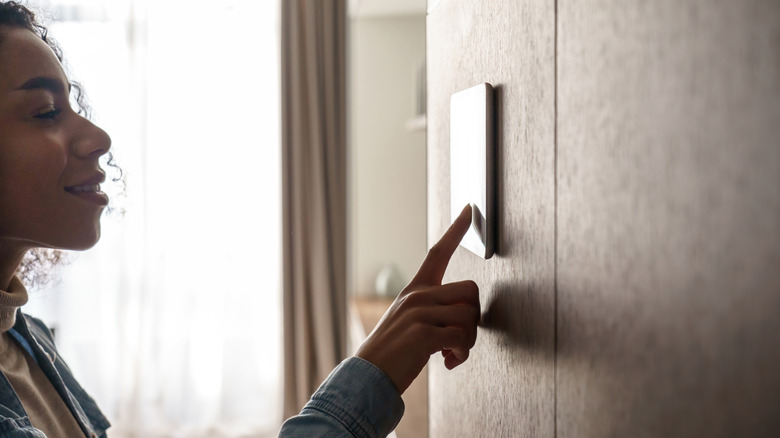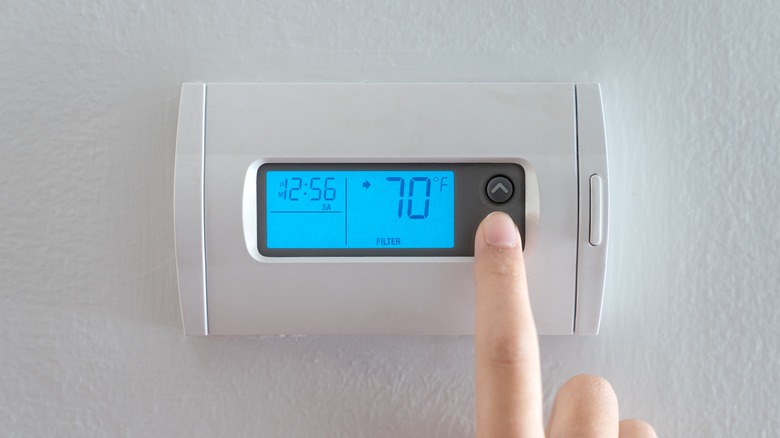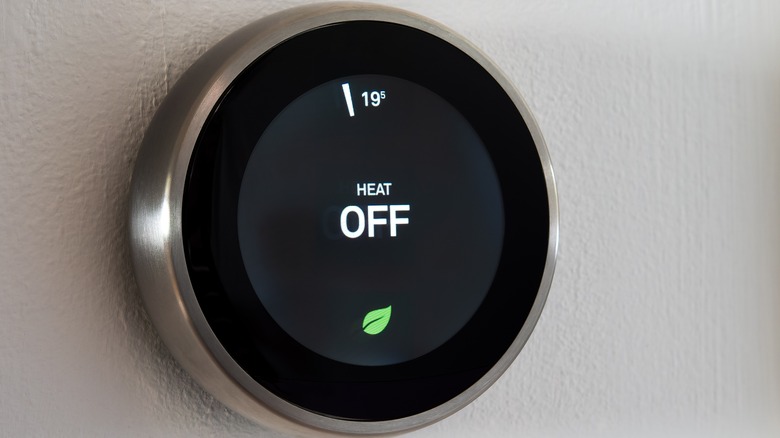What Temperature Should You Set Your Thermostat To Before You Go On Vacation In Winter?
With various cold fronts and blustery snow storms rolling through the United States, a well-functioning heating system is necessary to keep out the cold while keeping your home in ideal working condition. The holiday season, and the months following, can serve as a time for vacationing and trips taken to visit family or friends, which could mean leaving your house unattended for days, or even weeks at a time. Do you need to keep the heat on while you're away?
The best practices for HVAC maintenance and upkeep usually differ depending on where you live, as some parts of the U.S. grow hotter or colder than others at certain times of the year. However, some principles remain true regardless of location, including how to manage your unit when you're away during the winter. Here are some guidelines to follow when it comes to heating your house, along with why it's important to do so.
Ideal temperature settings for your home
The best thermostat setting for your house depends on many factors, including the time of day, the time of year, and what you're doing. According to the U.S. Department of Energy, the ideal temperature setting for your thermostat when you're home during the winter is 68 degrees. This setting allows you to live comfortably while also conserving energy, cutting back on monthly costs in the process.
On the other hand, homeowners should set their thermostats no lower than 50 degrees while away for long periods of time during the coldest months of the year. While 50 degrees appears to be the limit agreed upon by most HVAC professionals and energy conservation resources, some sources advise homeowners to set their thermostats a few degrees warmer to be on the safe side. Dominion Service Company recommends setting thermostats at around 55 degrees, while Burnsville Heating & Air Conditioning states to avoid setting thermostats to any temperature lower than 60 degrees if you live in a particularly cold area. Ultimately, homeowners should take into account their location, house size, and the amount of time they'll be absent before setting their thermostats to the temperature they think is best suited for their home.
What if I turn my thermostat off instead?
Many homeowners consider it reasonable to turn their air conditioning units off when not at home, as a means of conserving energy and lowering costs. However, this choice isn't ideal, especially during the freezing winter months. According to Mid Atlantic Heating and Air Conditioning, leaving HVAC units off for long periods of time in winter, especially at night as temperatures drop outdoors, can cause the pipes located inside your home to freeze and burst. Keeping the interior of your home warm can prevent you from facing a costly plumbing nightmare.
Turning the heat off inside your home during the winter can also detrimentally affect your health. Stone Heating and Air state that indoor temperatures below 60 degrees may result in poor sleep, which can negatively impact other aspects of your daily life. Additionally, allowing temperatures to drop too low within your living space can lead to the development of respiratory conditions, like asthma, pulmonary issues, heart attacks, strokes, and mental health problems, per Dr. Energy Saver. So, maintaining temperatures below 60 degrees in your home may be suitable when you're away, but it certainly isn't when you're present!


